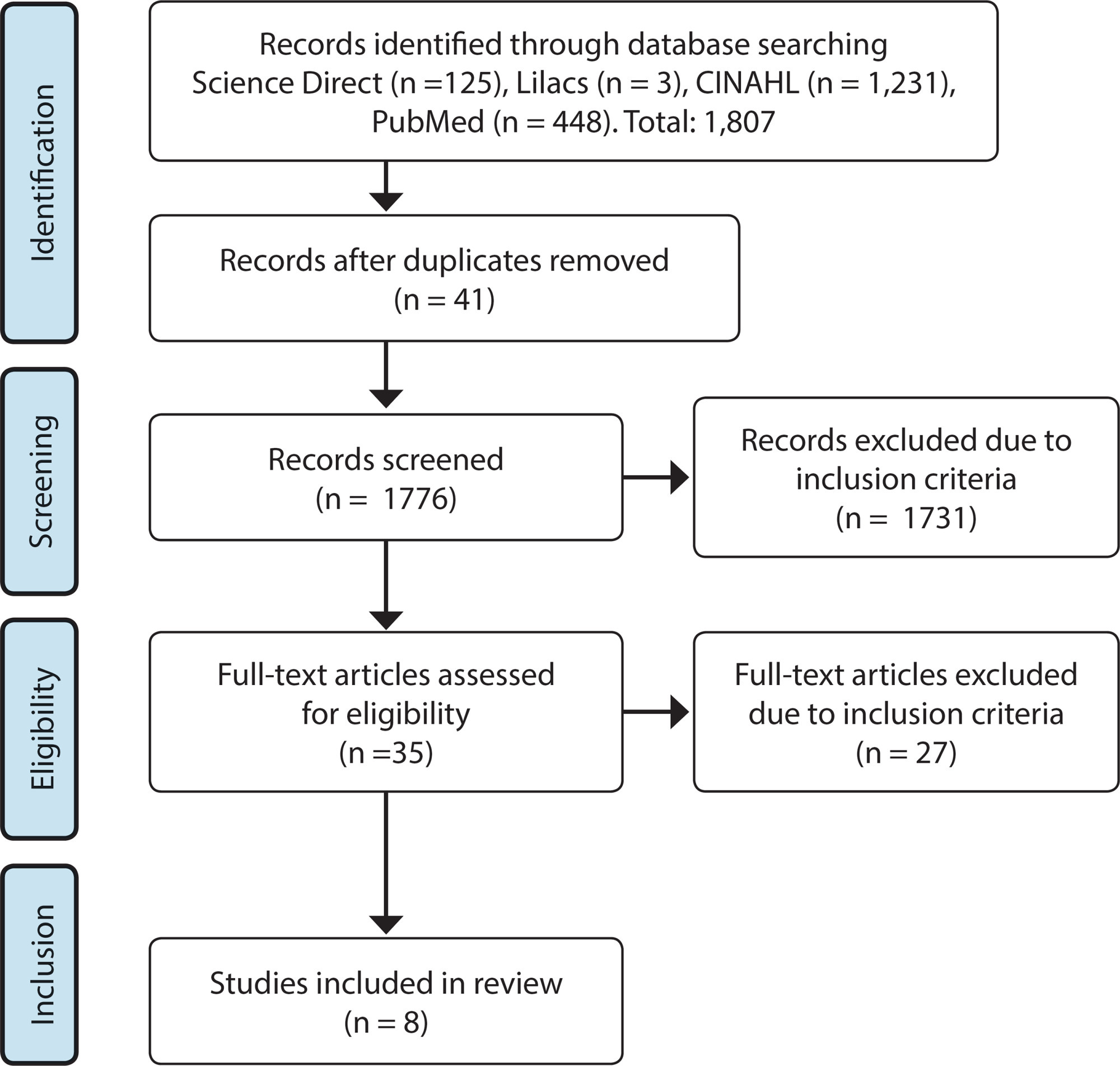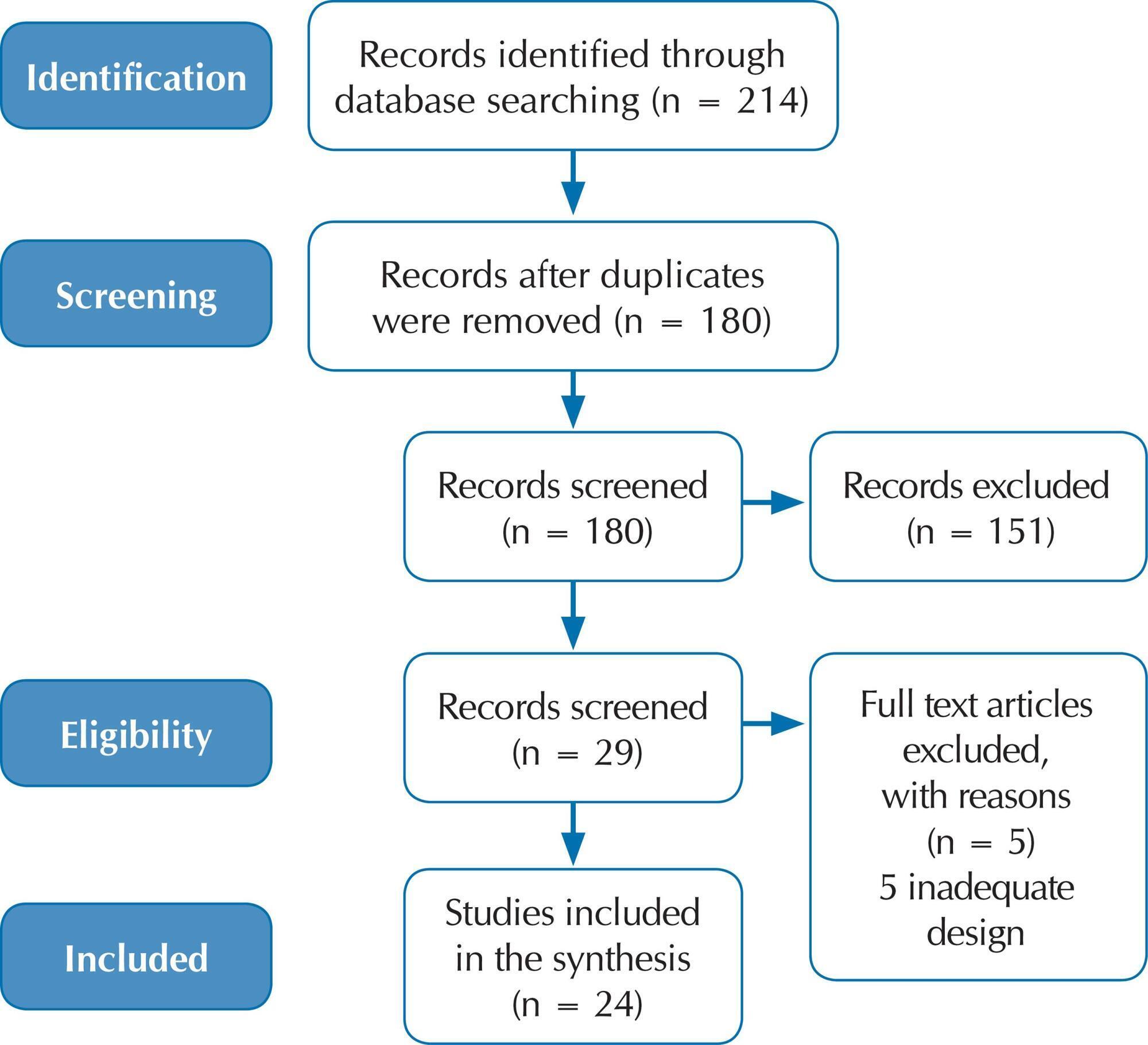-
REVIEW12-21-2020
Hope-based interventions in chronic disease: an integrative review in the light of Nightingale
Revista Brasileira de Enfermagem. 2020;73:e20200283
Abstract
REVIEWHope-based interventions in chronic disease: an integrative review in the light of Nightingale
Revista Brasileira de Enfermagem. 2020;73:e20200283
DOI 10.1590/0034-7167-2020-0283
Views0See moreABSTRACT
Objective:
To identify the available evidence in the scientific literature about the strategies or interventions used to promote hope in people with chronic diseases.
Method:
An integrative literature review of literature published between 2009-2019, which was conducted in online browsers/databases: b-On, EBSCO, PubMed, Medline, ISI, SciELO, PsycINFO, Google Scholar. Forty-one studies were found, of which eight met the inclusion criteria.
Results:
Most studies used a quantitative approach. There was a predominance of studies from Asia and America, addressing patients with multiple sclerosis, diabetes, congestive heart failure, and cancer. Hope-based interventions were categorized by the hope attributes: experiential process, spiritual/transcendence process, rational thought process, and relational process.
Conclusion:
Hope-based interventions, in its essence, are good clinical practices in the physical, psychological, social and spiritual domains. This is congruent with the vision of nursing, first proposed by Florence Nightingale. There seem to be gaps in the literature regarding specific hope promoting interventions.

-
REVIEW01-01-2018
Spirituality review on mental health and psychiatric nursing
Revista Brasileira de Enfermagem. 2018;71:2323-2333
Abstract
REVIEWSpirituality review on mental health and psychiatric nursing
Revista Brasileira de Enfermagem. 2018;71:2323-2333
DOI 10.1590/0034-7167-2016-0429
Views0See moreABSTRACT
Objective:
Gather the concepts, theories and interventions about spirituality, its nature and functions in mental health and psychiatric nursing.
Method:
A literature review proceeded on February 2016. It has integrated 214 studies published until December 2015 by crossing Spirituality and Psychiatric Nursing mesh terms in databases.
Results:
Conceptualization about spirituality and religion, their complexity in nursing research, education, and clinical approach; their functions to human being correlated to the purpose of life, transcendental connections, and support in mental health; the professional boundaries in address to spirituality in mental health scenery, and a descriptive literature recommendations and a instruments catalog.
Conclusions:
Spirituality in nursing mental health and psychiatry remains a theoretical problem, and has a clinical mischaracterized approach; recently publications try to promote a human and holistic trend in the practice, as a challenge to lead the current circumstances to valid nursing bases.




